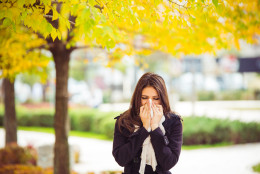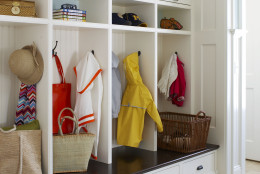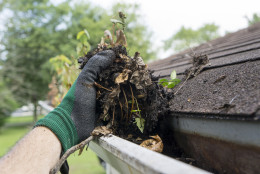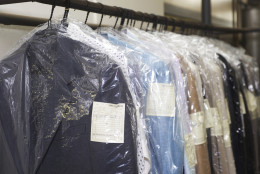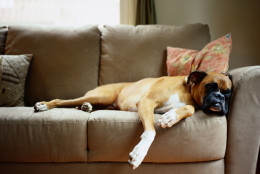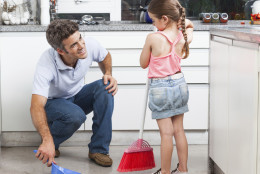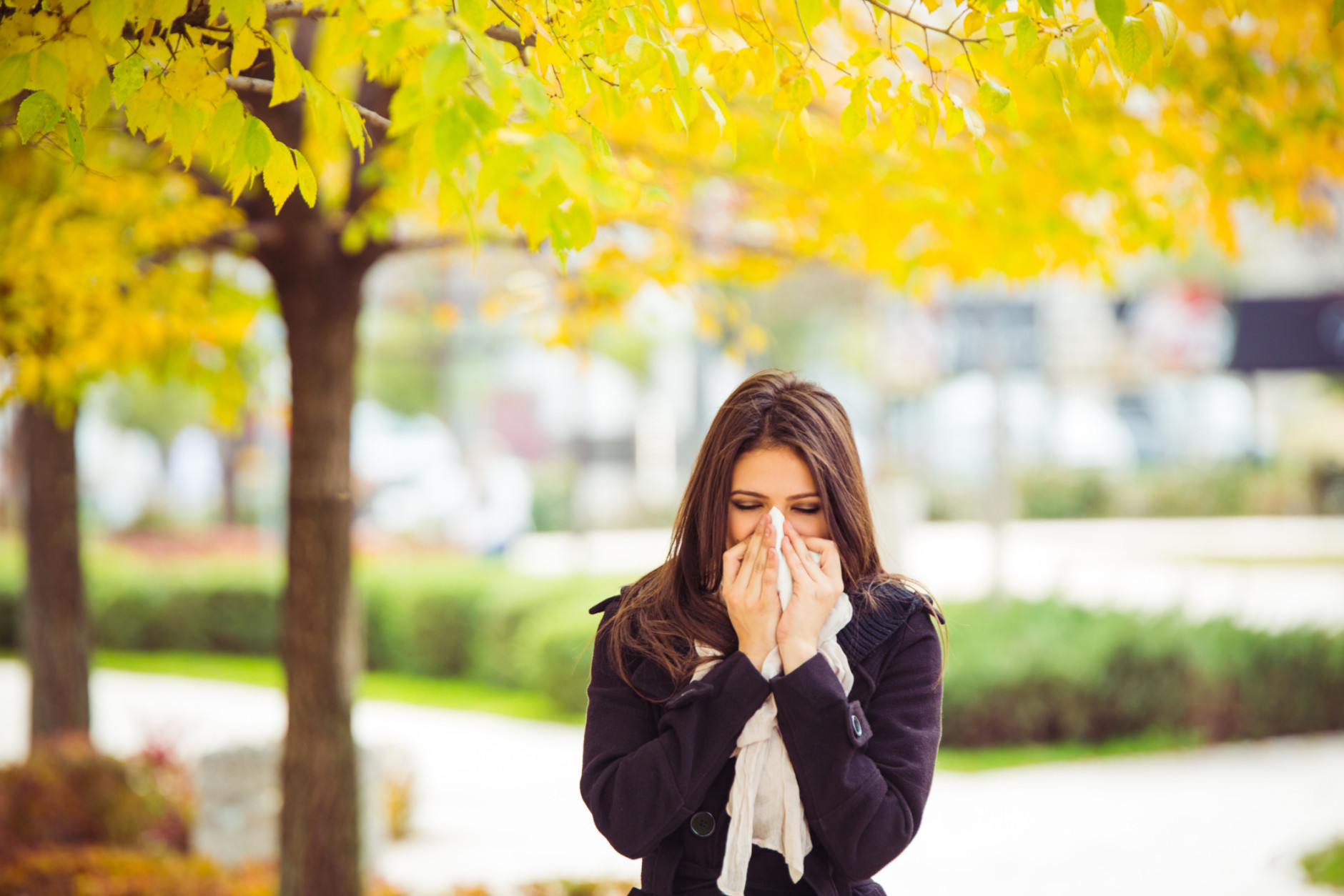
Pollen-coated cars and budding trees may have you sniffling and sneezing, but Mother Nature isn’t the only source of allergies. Your indoor environment may be to blame as well.
Robin Wilson, author of “Clean Design: Wellness for Your Lifestyle” and an ambassador for the Asthma and Allergy Foundation of America, says controlling a few things in your home can make a world of difference when it comes to staying healthy this spring.
Everything from pet dander, to a damp basement and even the dry cleaning can have you clamoring for Claritin. Here are her best tips for breathing a bit easier this season. (Thinkstock)
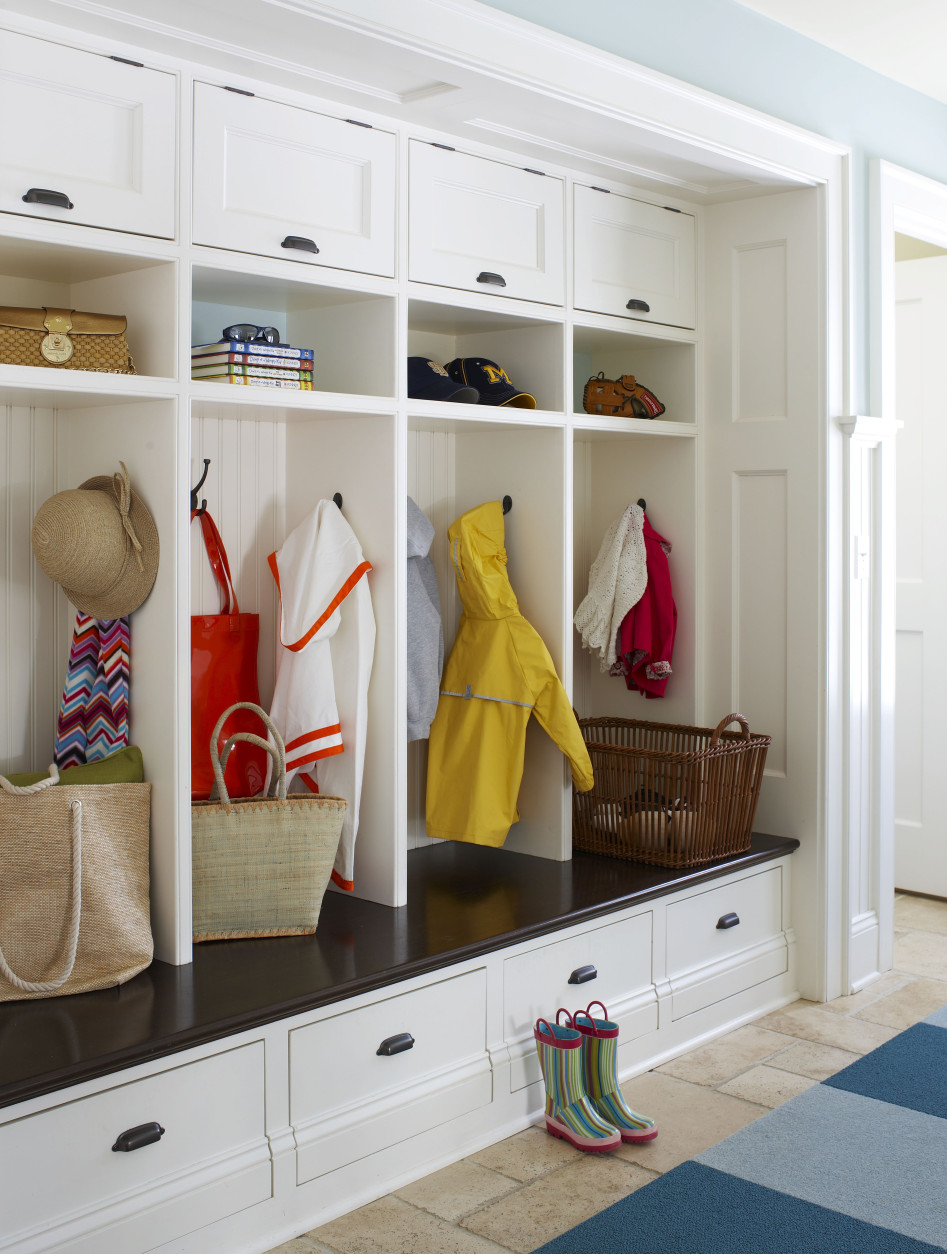
Taking your shoes off when you step inside does more than keep your floors from being coated in mud; it helps keep outdoor allergens where they belong: outside.
Wilson suggests placing a mat, a shoe rack and a coat rack in your entryway so you can remove your shoes, jacket and other outerwear clothing before coming into the house. This keeps the pollen off of you as you continue on with your day, and out of the other rooms in your home. (AP Photo/Better Homes & Gardens, Michael Partenio)
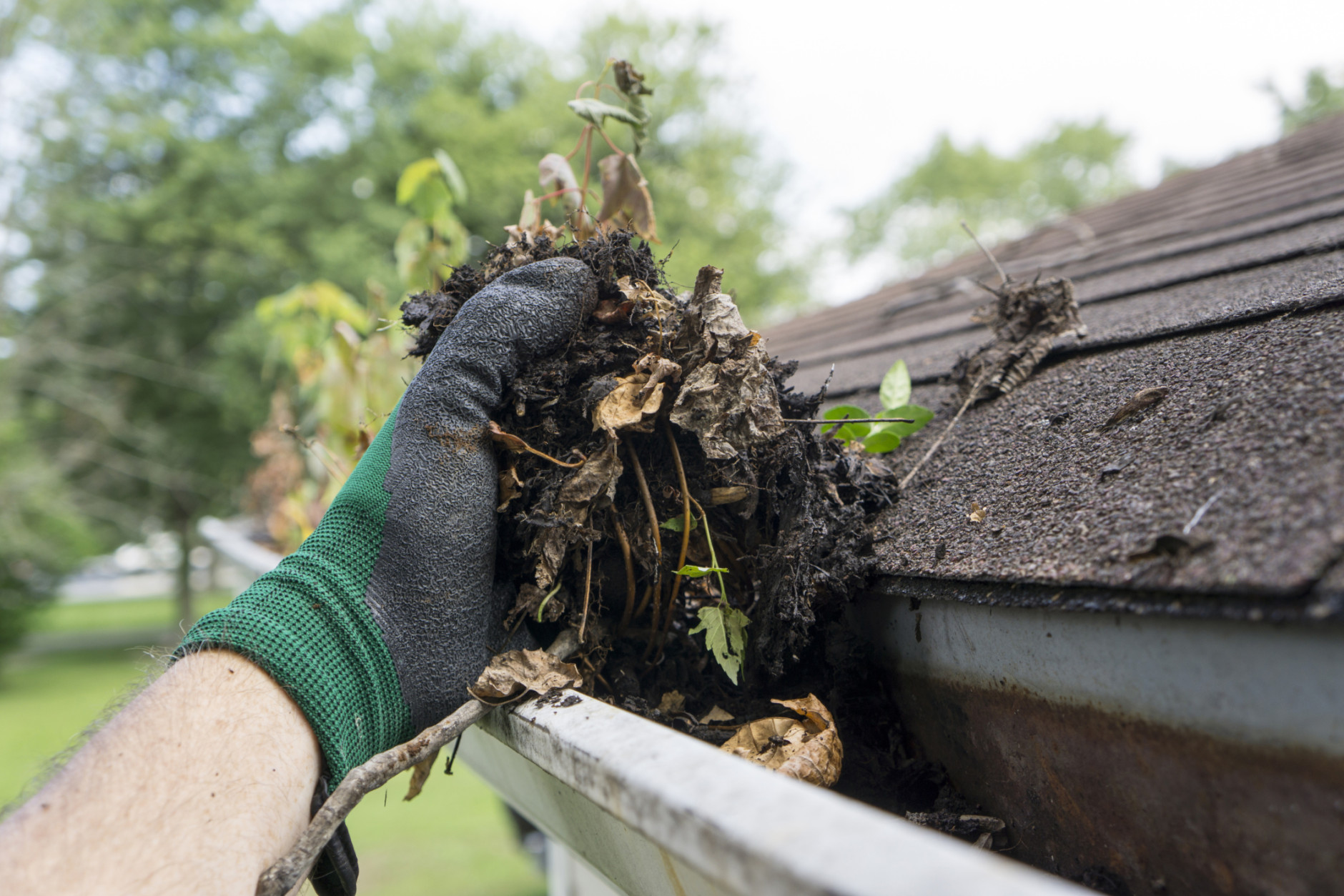
What do a damp basement, a musty library and a stuffy bathroom have in common? Mold.
“One thing that we have to remember is that [mold] is carried by spores and spores can just fly from anywhere and they love to eat things like paper,” Wilson said.
Setting up dehumidifiers throughout your house can help you breathe easier by keeping the moisture down and the mold away.
“Use a dehumidifier that has a humidity setting on it and keep it between 45 and 65; ventilate by using exhaust fans in your bathroom and kitchen and other damp areas,” Wilson recommends.
Clearing your gutters of debris also helps to avoid moldy situations. Wilson says to make sure gutters on the lower level are directed away from your home and that gutters on the upper level aren’t backed up with dirt, leaves and branches. (Thinkstock)
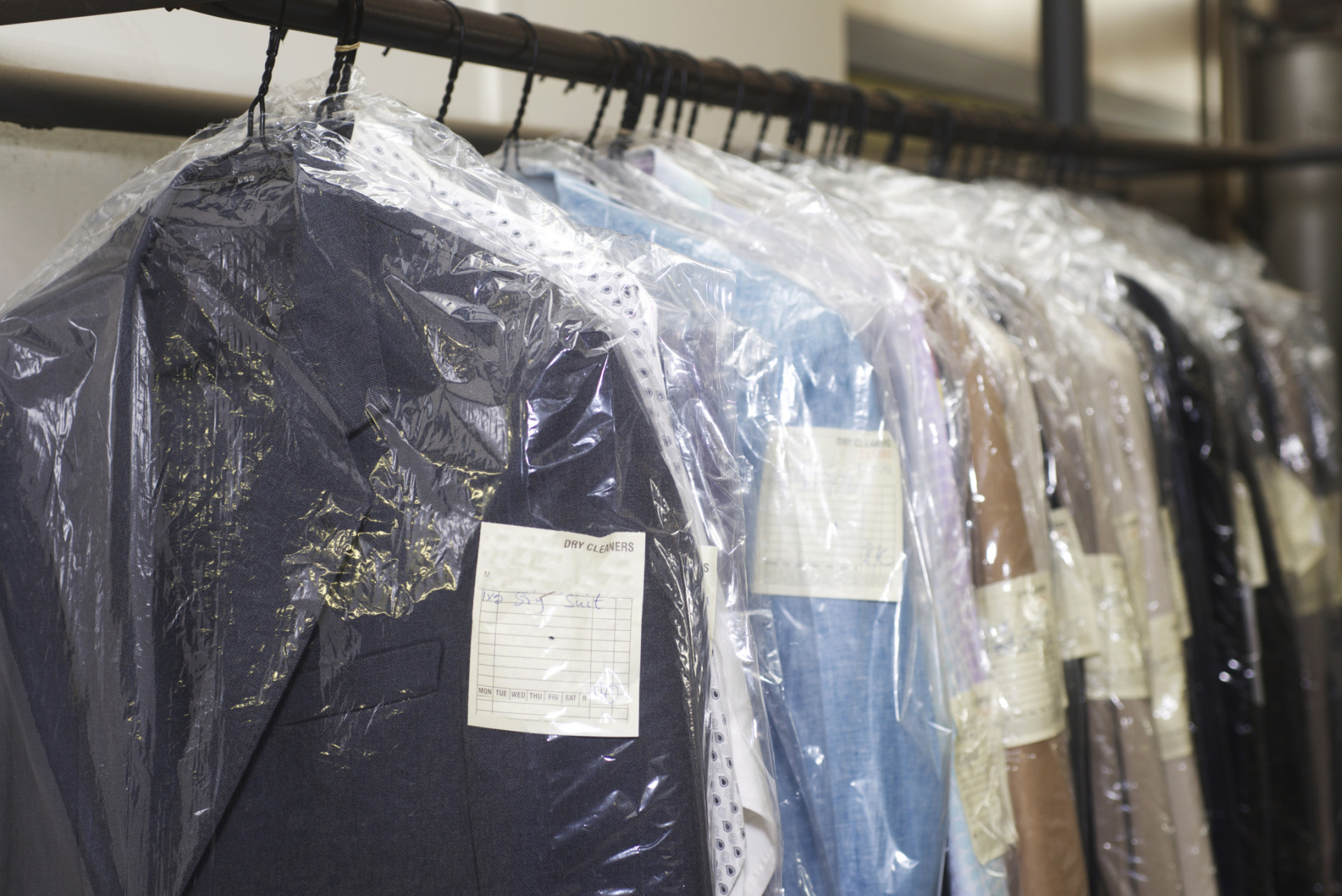
Believe it or not, your clean clothes could be the cause of your itchy eyes and congested airways.
Wilson says a common cleaning agent used in the dry-cleaning processes, called perc, is a carcinogen and allergen irritant.
To limit your exposure, she recommends hanging your freshly pressed clothes in the garage or an entryway closet so that they can “off gas” before bringing them in your bedroom. (Thinkstock)
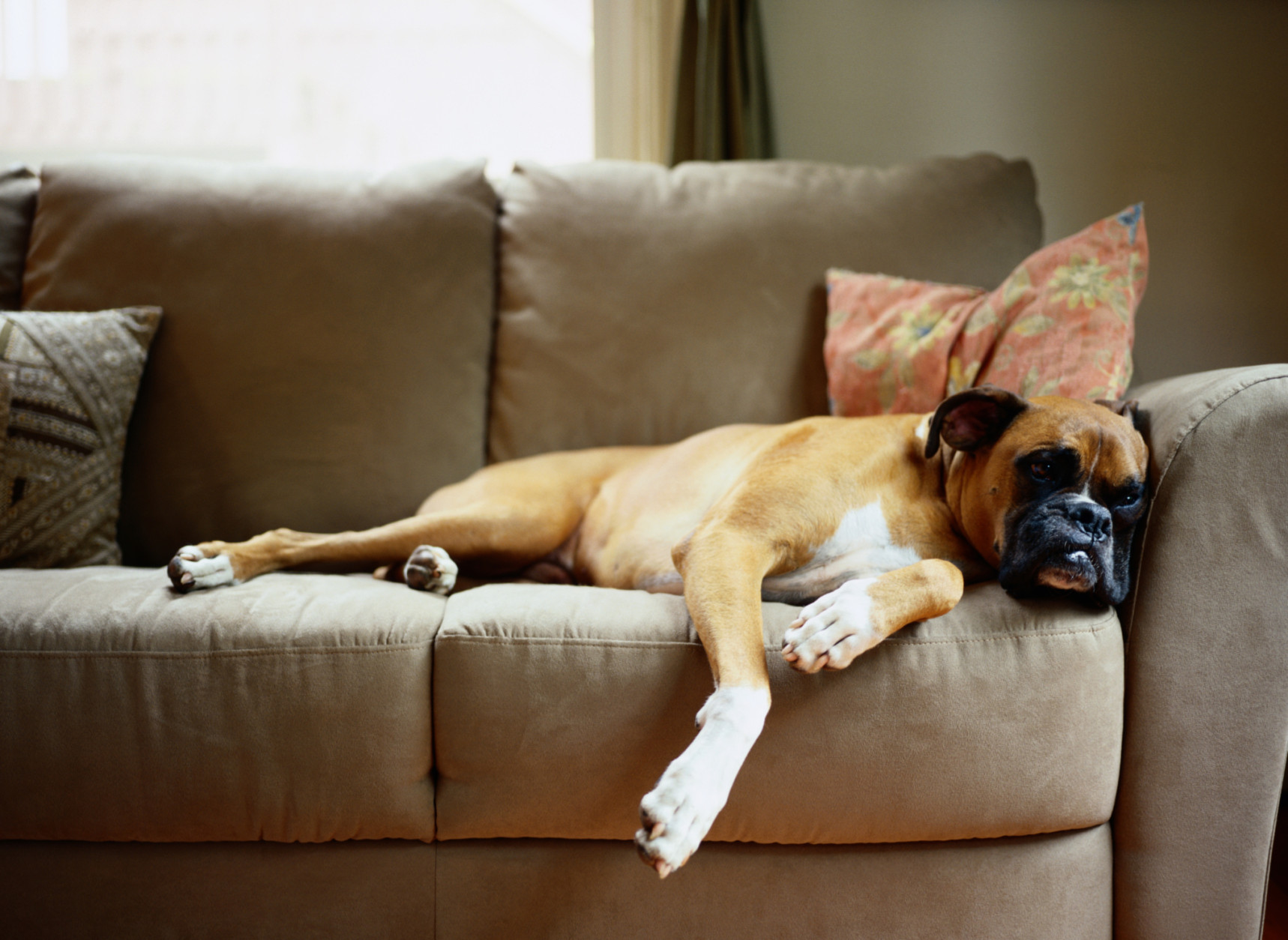
Many think of their pets as members of the family, but if you have allergies, pets should become family members who have restricted lounging areas.
Dogs and cats are covered in pet dander — a common allergy trigger. Plus, pollen, ragweed and other outdoor allergens hide in their coats. So if your pet’s first instinct is to jump on the couch or nap in your bed, those irritants can be easily transferred to your living areas.
Too late to teach your dog new tricks? Vacuum the couch and chair cushions regularly and give your four-legged pal a bath often. Wilson also suggests that those with carpet invest in a robotic vacuum.
“So when you’re at work during the day, the [vacuum] could be going and cleaning up pet hair on a regular basis,” she said. (Thinkstock)
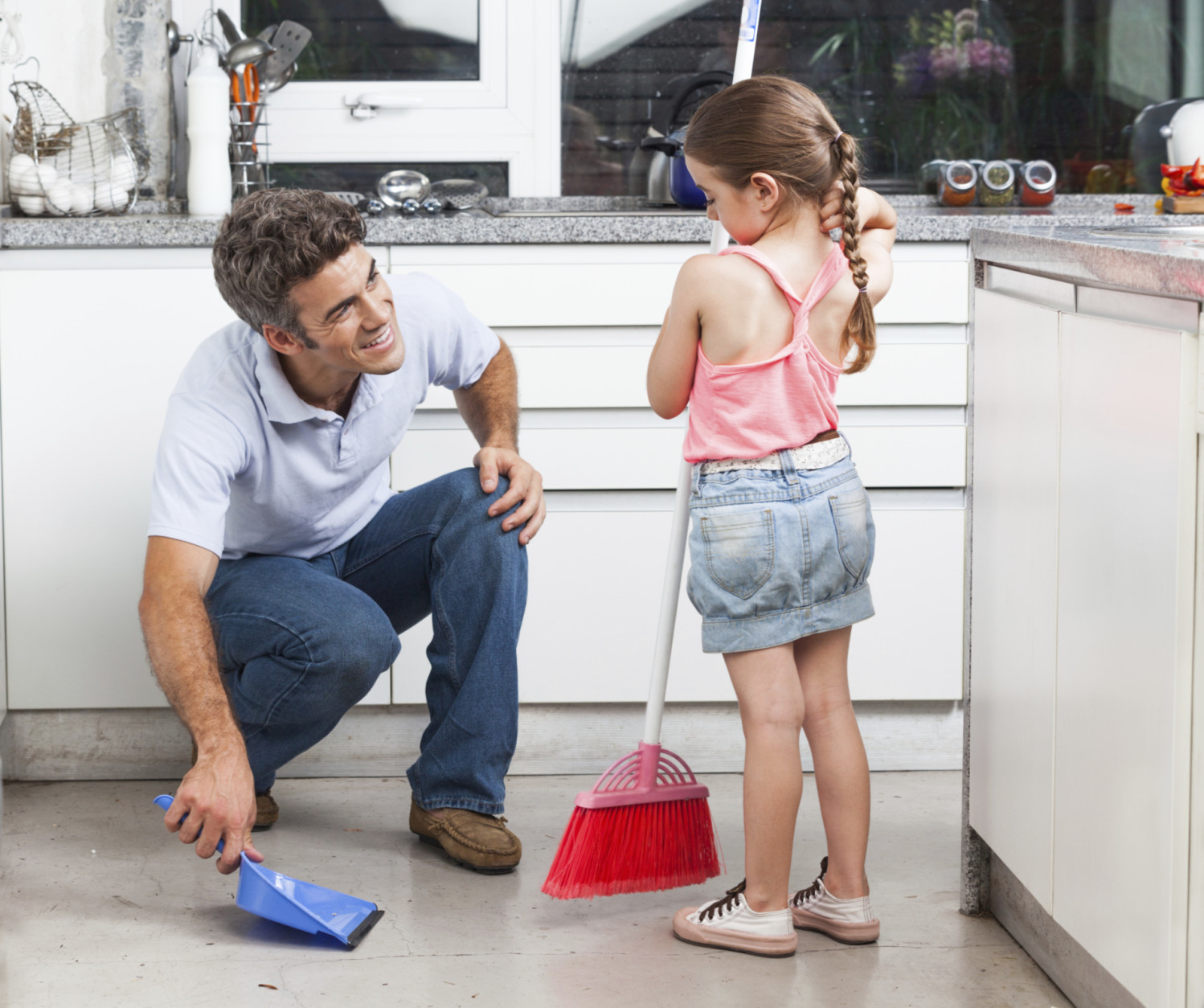
Cockroaches and mice inflict more than the “ick”-factor.
“[Vermin] is a major trigger for those who suffer from asthma and allergies,” Wilson said.
After meal time, Wilson says to make sure you get crumbs off the floor with a broom or vacuum, and mop up sticky messes soon after they happen.
Also, be sure to repair holes in your walls, and check for tears in the screens before you open the windows to enjoy the fresh spring air.
“A lot of people don’t think about that and then they open their windows, and those can be entry points [for bugs] into your home,” Wilson said. (Thinkstock)
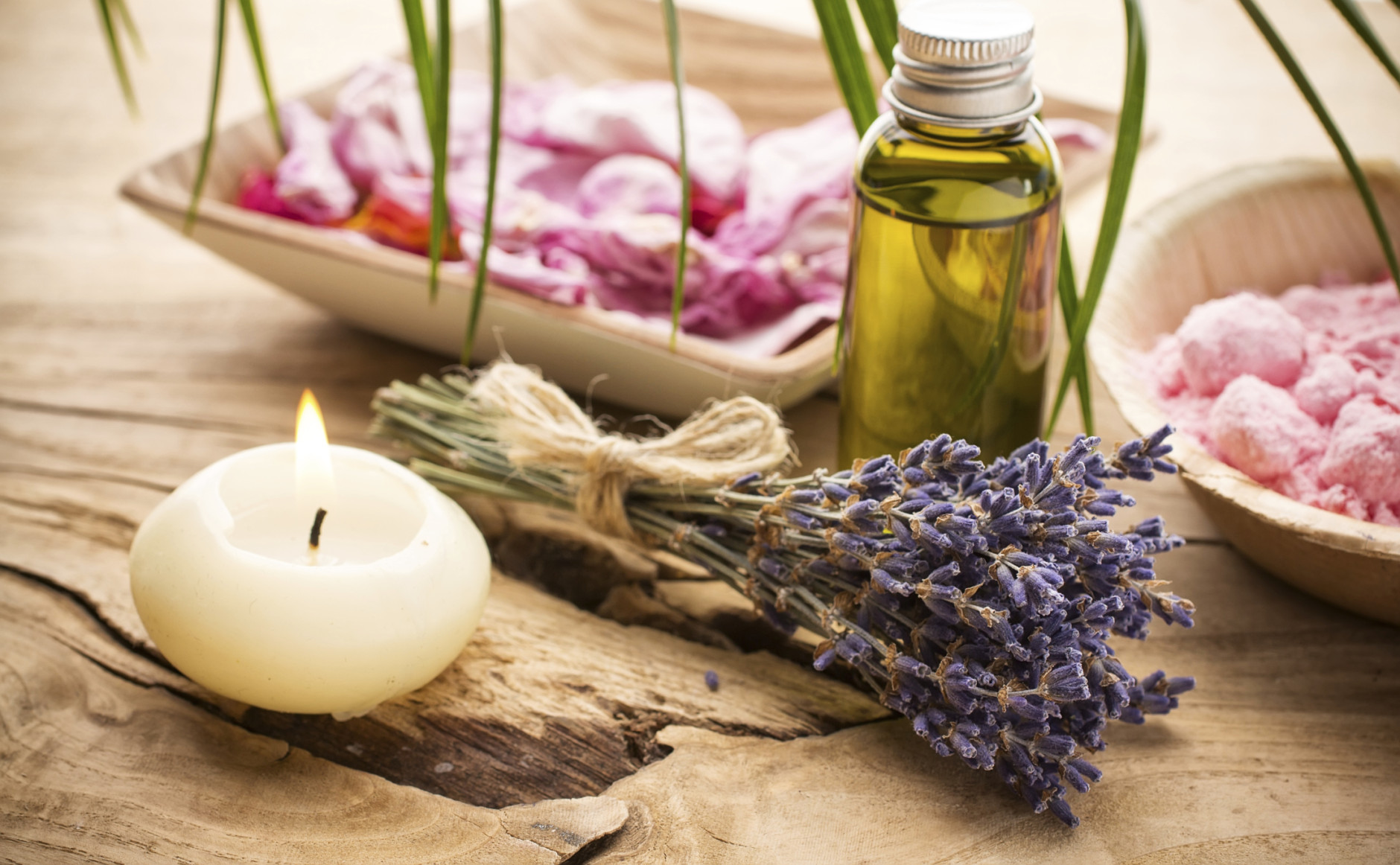
Perfumed lotions, scented shampoos and aromatic candles are all nice to have, but they can set fire to your allergies.
“Your goal throughout your home is to make sure that odors and scents from shampoos and perfumes are either managed or limited,” Wilson said.
She recommends buying unscented lotions and soaps, and opting for flameless or unscented candles for your home. (Thinkstock)
